Author: everbella
6 Reasons Gummies Might Be the Smartest Way To Take Your Supplements
Remember when getting a gummy meant you were five years old and your biggest worry was finishing your cereal before cartoons started?
Well, turns out you were onto something.
Because gummies aren’t just for kids anymore — they’ve grown up right alongside you. And these days, they’re packing some serious beauty benefits.
Gone are the days of choking down chalky vitamins or forgetting to take your pills (again). Gummies have made taking care of your body fun — and more importantly, consistent.
And when it comes to supporting glowing skin, shiny hair, and strong nails, that consistency matters a lot more than you think.
Here’s why your next beauty supplement should look (and taste) more like candy than capsules…
1. You Actually Remember to Take Them
Let’s be honest — remembering to take supplements every day can feel like a full-time job.
Capsules, powders, tablets, liquids… each one with its own timing, instructions, and storage rules. It’s no wonder consistency slips!
But with gummies, that all changes.
They’re small, sweet, and feel more like a reward than a responsibility. Which means your brain doesn’t categorize them as “another thing you have to remember.” It sees them as a treat.
And that’s huge — because when you actually enjoy your supplements, you’re more likely to take them every day.
So instead of guilt-tripping yourself over missed doses, you look forward to them. Two chewy little gummies, and you’ve done something wonderful for your hair, skin, and nails before you’ve even finished your coffee.
Consistency isn’t just easy, but you look forward to it.
2. They Taste Amazing — Without the Junk
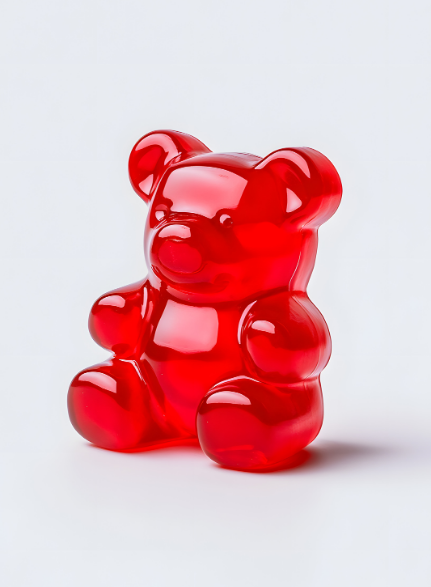
If something doesn’t taste good, it’s hard to stick with it — even if it is good for you.
That’s why gummies are secretly genius. They take all the goodness of a supplement and wrap it in a little moment of joy.
But here’s the key: not all gummies are created equal.
Some are loaded with corn syrup, artificial dyes, or ingredients that sound like they came out of a science lab. But the good ones — like EverBella’s NutraBoost Beauty Gummies — taste amazing without the junk.
Each chew is naturally sweetened with fruit flavors and made from plant-based ingredients. No animal gelatin. No artificial coloring. No weird aftertaste.
Just a delicious, vegan-friendly beauty boost you’ll actually want to take every day.
Because the easier (and tastier) something is to enjoy, the more likely you are to do it consistently (and that’s where real results happen).
3. They Can Be Easier To Absorb
Here’s something most people don’t realize: your digestive system plays a huge role in how well your supplements work.
If your stomach struggles to break down tablets or capsules — or if you’re someone with a sensitive gut — your body might not actually be absorbing all those nutrients.
That’s where gummies have an edge.
Since they start breaking down in your mouth, your body begins absorbing nutrients right away, even before they hit your stomach. Plus, the soft, chewable texture means there’s no hard capsule shell to digest, making the nutrients more accessible to your system.
And when you’re investing in your beauty nutrition, you want to make sure your body actually gets to use it.
That’s one of the many reasons why I made NutraBoost Beauty Gummies. They’re not just fun to take, they’re designed to help your body soak up every last bit of those hair-, skin-, and nail-loving nutrients.
4. You Don’t Need a Handful of Pills
Who decided good health had to come in the form of a dozen pills a day?
Between multivitamins, biotin, silica, vitamin C, and antioxidants, most beauty routines start to look like pharmacy counters. And let’s be honest — that’s not sustainable (or fun).
That’s why NutraBoost Beauty Gummies were made to simplify things. All those pills can be broken down into a simple gummy!
Each serving is packed with a full spectrum of nutrients your hair, skin, and nails crave:
- Biotin + Zinc – for thicker hair, faster cell renewal, and stronger nails.
- Amla Berry + Japanese Knotweed – rich in natural antioxidants that fight oxidative stress (and help protect collagen).
- Bamboo Leaf Extract (Silica) – supports elasticity, resilience, and the smooth structure of youthful skin.
All in just two tasty, vegan-friendly gummies a day.
No bottles, no mixing, no choking down dry capsules — just your beauty nutrition, made easy (and delicious).
5. They Support Real, Lasting Beauty — From the Inside Out
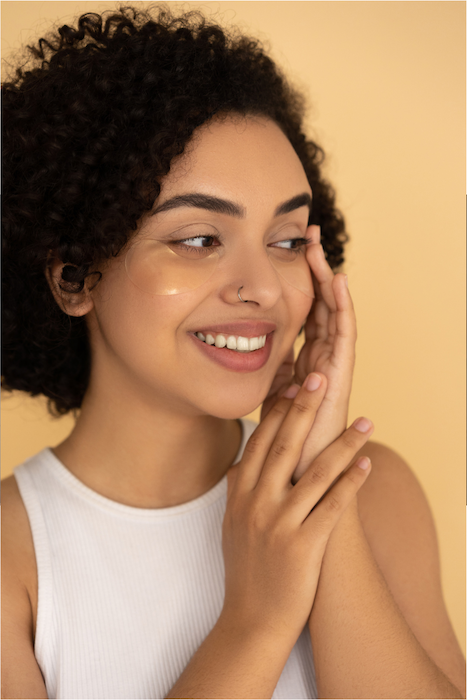
Here’s the truth: your hair, skin, and nails don’t start in your bathroom mirror — they start in your bloodstream.
That’s why no amount of expensive creams, serums, or salon visits can make up for nutrient gaps on the inside.
Your body needs a steady supply of beauty-building nutrients to keep your collagen strong, your skin smooth, your nails sturdy, and your hair growing fast.
That’s exactly what NutraBoost Beauty Gummies were made to do.
With plant-based antioxidants, essential vitamins, and silica from bamboo, they feed your body the nutrients it needs to build beauty — not just fake it.
Because true beauty isn’t about covering things up. It’s about nourishing your body so deeply that the glow starts showing on its own.
6. They Make Self-Care Feel Effortless
Let’s face it — self-care can sometimes feel like another thing on your to-do list. Between work, family, and everything else, adding one more “routine” can feel impossible.
That’s why little rituals matter so much.
When something feels simple, rewarding, and even a little fun — it sticks. And that’s exactly what makes NutraBoost Beauty Gummies so special.
They turn your daily beauty routine into a moment of joy. A sweet little reminder that taking care of yourself doesn’t have to be complicated, boring, or time-consuming.
Two gummies. One minute. A whole lot of glow in return.
When self-care feels this effortless, consistency comes naturally (and so do results).
The Bottom Line
If you’ve ever struggled to stay consistent with your supplements… maybe it’s not you. Maybe it’s the supplements.
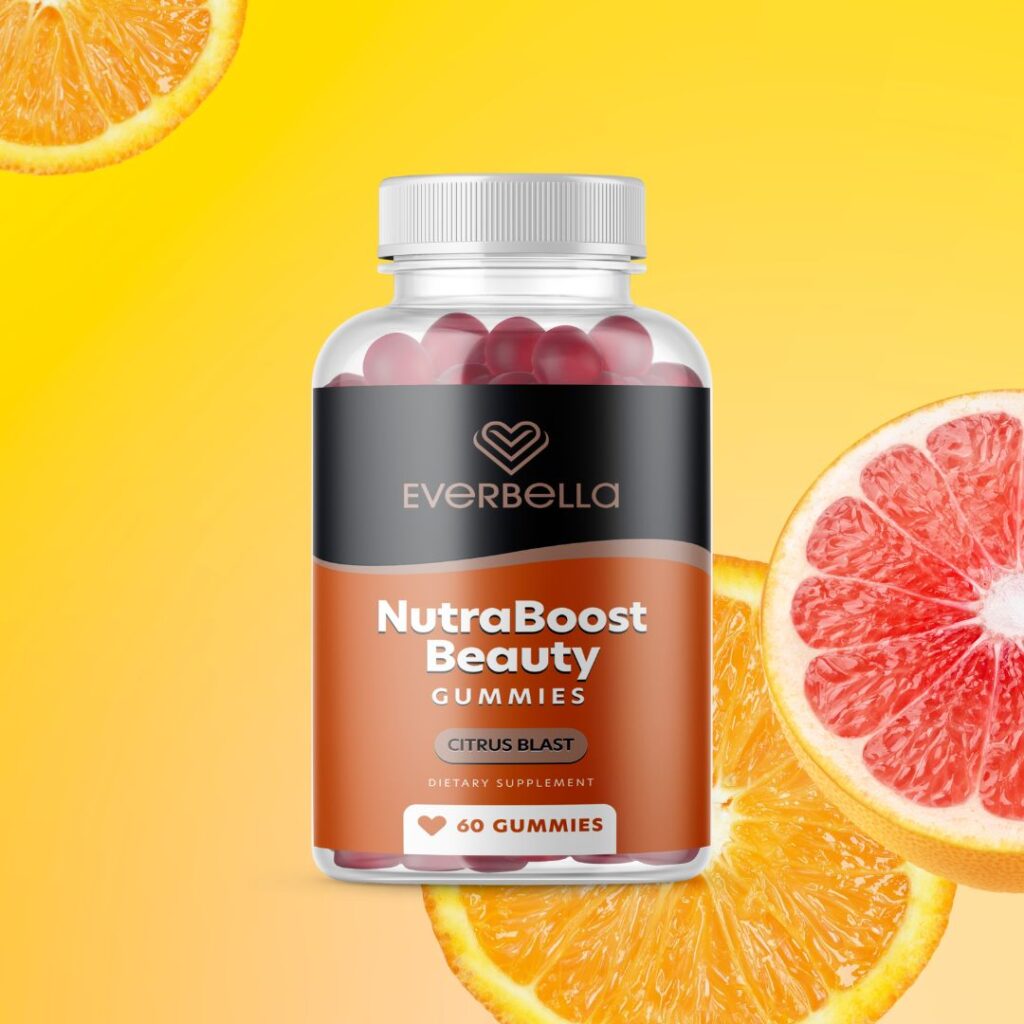
Because when something tastes amazing, feels simple, and actually delivers real results, you don’t have to remind yourself to take it. You’ll want to.
That’s the beauty of EverBella’s NutraBoost Beauty Gummies.
They combine the very nutrients your hair, skin, and nails need — biotin, folate, silica, antioxidants, and plant-based superfoods — in a delicious vegan gummy you’ll look forward to every day.
No powders. No pills. No excuses.
Just two sweet, chewy steps toward glowing skin, shiny hair, and stronger nails — from the inside out.
✨ Tap here to discover NutraBoost Beauty Gummies and turn your beauty care into self-care >>
Because when taking care of yourself feels good… it shows. 💕
AGEs: The Hidden Molecules That Make You Age Faster
You’ve heard of wrinkles, sun damage, and collagen loss due to stuff like oxidative stress and free radicals.
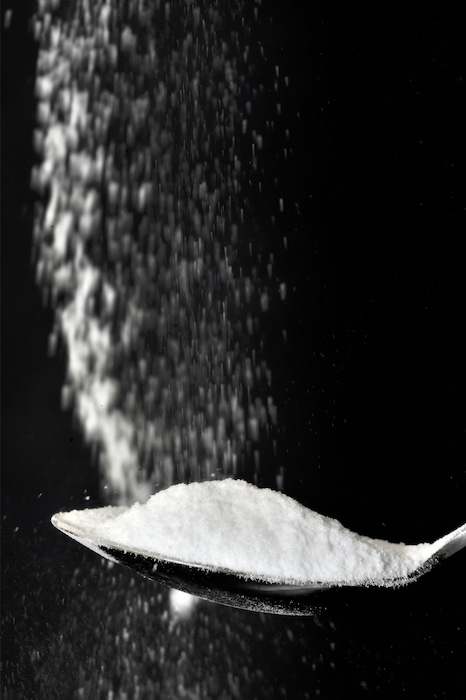
But have you heard of AGEs?
No, they’re not a number. They’re a molecule. And they could be one of the biggest culprits behind visible aging.
AGEs (short for Advanced Glycation End Products) are sneaky compounds that form inside your body every single day. You can’t see them, but you can see their effects — in your skin, your joints, even your energy levels.
They’re what happens when sugar molecules attach themselves to proteins like collagen, essentially “caramelizing” them from the inside out. The result? Stiff, brittle skin that loses its bounce and radiance over time.
But here’s the good news: once you understand what AGEs are and how they form, you can make simple changes to slow them down — and even help your body rebuild what’s been damaged.
Let’s take a closer look at what these molecules are doing behind the scenes… and how supporting your collagen might be one of the best ways to defend against them.
What AGEs Actually Are (In Simple Terms)
To understand AGEs, picture what happens when you cook food until it turns golden brown — like searing a steak or toasting marshmallows. That crispy, browned coating is caused by glycation, a chemical reaction between sugars and proteins.
Now imagine that same reaction happening inside your body.
That’s what forms Advanced Glycation End Products, or AGEs — clumps of sugar-bound proteins that stiffen and age your tissues from within.
Normally, your body can process and clear some of them out. But when there’s too much sugar, oxidative stress, or inflammation in the mix, AGEs start to build up faster than your system can handle.
Over time, they begin to “cross-link” important structural proteins like collagen and elastin — the same ones that keep your skin firm, bouncy, and youthful. The result? Collagen fibers become rigid, brittle, and discolored, just like overcooked caramel.
And once those fibers harden, your body can’t easily reverse the process — which is why glycation is often called one of the most damaging forces behind premature aging.
How We Get Them
AGEs don’t just appear out of nowhere. We help them form, often without realizing it.
There are two main ways we accumulate these aging molecules: through what we eat and how we live.
Let’s break it down:
1. Dietary AGEs

Certain foods — especially those high in sugar or cooked at high temperatures — create AGEs before they even reach your plate.
Think:
- Fried foods
- Charred or grilled meats
- Processed snacks and pastries
- High-sugar desserts and sweetened drinks
These preformed AGEs can enter your body through digestion, adding to your overall “glycation load.”
2. Lifestyle AGEs
Your body also forms AGEs on its own when sugar lingers in the bloodstream and binds to proteins — a process that speeds up under certain conditions:
- High stress (raises blood sugar and inflammation)
- Lack of sleep (impairs glucose control)
- Smoking and alcohol (increase oxidative stress)
- UV exposure (creates free radicals that accelerate glycation)
Over time, these everyday habits act like a slow “heat” applied to your tissues — browning your collagen little by little, year after year.
The result? Collagen that once stretched and rebounded easily becomes stiff, fragile, and dull — unable to support firm, radiant skin the way it used to.
But that doesn’t mean it’s hopeless. Your body is constantly breaking down and rebuilding collagen. This means that with the right support, you can give it the tools to rebuild stronger, more flexible fibers again.
How AGEs Damage Your Collagen
Collagen is the protein that gives your skin its structure — like the scaffolding in a building. It keeps your skin firm, smooth, and elastic.
But when AGEs enter the picture, that scaffolding starts to weaken.
Here’s how it happens:
- Sugar molecules attach to collagen fibers.
These sticky sugar fragments form bonds with the amino acids in collagen, a process called cross-linking. - Cross-linked collagen becomes stiff and fragile.
Instead of staying flexible and resilient, the fibers harden — like rubber bands left out in the sun. - Damaged collagen builds up.
Once glycated, collagen is harder for your body to recycle and replace. These “AGE-d” proteins linger longer, clogging up your skin’s natural renewal process. - Inflammation speeds the damage.
AGEs also trigger oxidative stress and inflammation, creating even more harm to your collagen, elastin, and surrounding cells.
Over time, this chain reaction leads to visible signs of aging:
- Fine lines and wrinkles
- Loss of firmness and elasticity
- Dull, uneven skin tone
And it’s not just about looks. The same stiffening process affects joints, tendons, and even blood vessels.
In short: AGEs don’t just age your skin — they age you.
How Collagen Can Help Combat AGEs
The good news? Your body isn’t powerless against AGEs.
Even better news? Collagen can be one of your best defenses.
Your skin is constantly breaking down and rebuilding collagen, even as you read this. But when AGEs stiffen or destroy those fibers, your body needs extra resources to replace them — and that’s where supplementation helps.
By replenishing your collagen supply, you give your body the raw materials it needs to create new, flexible fibers — the kind that bounce, stretch, and reflect light beautifully.
And not all collagen is created equal. EverBella’s Complete Collagen Plus was formulated to do more than just replace what’s lost. It helps your body rebuild and protect collagen from multiple angles:
- Micelle Liposomal Collagen: A unique delivery method that increases absorption, ensuring your body actually uses the collagen you take.
- MCT Oil: Provides the essential fatty acids your cells use to generate new, healthy tissue — and adds a subtle, creamy texture when mixed into coffee or smoothies.
- Vitamin E: A powerful antioxidant that helps neutralize free radicals — the very molecules that accelerate glycation and collagen breakdown.
- DHA (Omega-3s): Supports skin hydration and elasticity while calming inflammation that can worsen AGE buildup.
Together, these ingredients don’t just replace damaged collagen. They help protect your existing collagen from further glycation and oxidative stress.
Because the best way to fight AGEs isn’t with quick fixes. It’s by giving your body what it needs to repair and renew itself from within.
How to Slow Glycation Naturally
You can’t completely avoid AGEs, but you can slow them down and limit the damage they cause. And the best part? Most of the strategies are simple habits that add up over time.
Here’s how to start protecting your collagen right now:
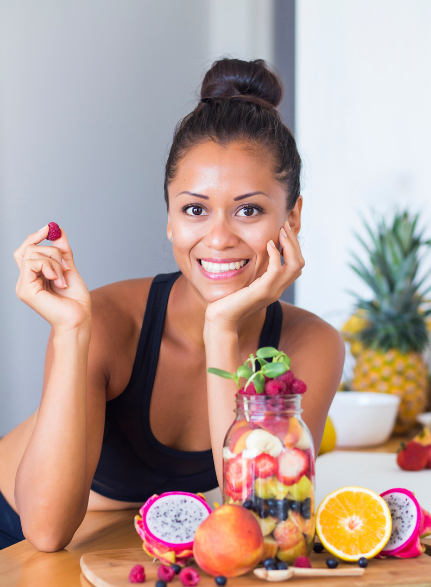
1. Cut back on added sugars
Sugar is the biggest contributor to glycation. Reducing sweets, soda, and processed carbs gives your body fewer sugars to bind with proteins — meaning fewer AGEs form in the first place.
2. Choose gentler cooking methods
High, dry heat (grilling, frying, roasting) creates more AGEs than moist, low-heat cooking (steaming, stewing, poaching). Try swapping crispy for simmered a few times a week — your skin will thank you.
3. Eat antioxidant-rich foods
Berries, citrus, leafy greens, and herbs like turmeric and cinnamon help fight the oxidative stress that accelerates glycation. Think of them as “AGE erasers.”
4. Stay hydrated
Water supports circulation and helps your body flush out the byproducts of glycation before they can build up.
5. Sleep and de-stress
Stress hormones and poor sleep spike blood sugar and inflammation — the two key drivers of AGEs. Even small steps like deep breathing, short walks, or earlier bedtimes make a measurable difference.
6. Support your collagen daily
Your body naturally repairs damage and produces new collagen every day — especially when it has the right nutrients.
That’s where Complete Collagen Plus can help, providing a daily boost of bioavailable collagen and antioxidants to keep your skin resilient against glycation and stress.
Small daily choices compound over time, and slowing glycation is one of the most powerful ways to preserve not just your skin’s glow, but your body’s overall vitality.
The Bottom Line
You can’t stop aging. But you can stop AGEs.
By doing so, you can slow the processes that make you look (and feel) older than you are.
AGEs may sound complicated, but at their core, they’re simply a buildup of damage — the result of everyday habits that gradually stiffen your cells and weaken your collagen.
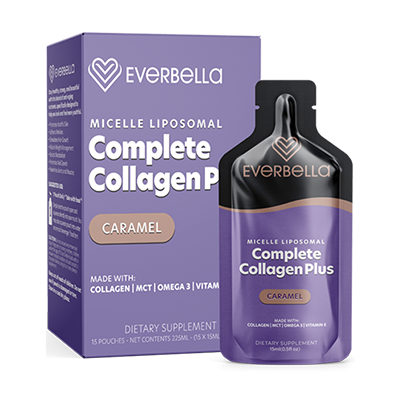
And since collagen is what keeps your skin firm, smooth, and strong, protecting it is one of the best anti-aging moves you can make.
That’s where EverBella’s Complete Collagen Plus comes in.
This micelle liposomal formula was designed to do more than replace lost collagen — it helps your body rebuild it better. With MCT oil, vitamin E, DHA, and antioxidant support, it gives your cells the nourishment they need to defend against glycation and oxidative stress, keeping your skin supple and resilient from the inside out.
So while AGEs may be unavoidable, their effects don’t have to be.
Feed your collagen daily, and your body will do the rest — repairing, restoring, and renewing itself one sip at a time.
✨ Support your collagen, strengthen your glow, and age beautifully, not rapidly — it starts by clicking here >>
The “Glass Hair” Trend — And How To Get It Naturally
There’s a reason the “glass hair” trend keeps going viral.

Haven’t seen it yet?
It’s that glossy, light-catching, impossibly smooth hair you see all over Instagram and TikTok — the kind that almost looks reflective.
But here’s what most people don’t realize: real “glass hair” isn’t about piling on products or spending hours straightening. True, constant shine doesn’t come from synthetic coatings or heavy silicones. It comes from healthy, nourished hair.
When your strands are hydrated, smooth, and sealed, they naturally reflect light like glass. And the best part? You don’t need a celebrity stylist or a flat iron on standby to get that look.
With the right care (and a few natural helpers), you can bring out that same mirror-like shine at home — no filters required.
In this post, we’ll explore why hair loses its luster, how to bring the glow back naturally, and what ingredients can help you achieve that radiant “glass hair” look in a healthy, lasting way.
What Makes Hair Lose Its Shine
If your hair has lost its shine, it’s not your imagination — and it’s not just “getting older.” Dullness is usually your hair’s way of saying: “Hey, I’m dehydrated and overworked.”
Here are some of the most common culprits behind that lackluster look:
- Heat styling: Flat irons and curling wands can make hair appear sleek temporarily, but the high temperatures weaken the cuticle — the protective outer layer that gives hair its smooth surface.
- Color treatments: Bleach and dye lift the cuticle and strip away natural lipids that help reflect light.
- Harsh shampoos: Sulfates and detergents remove the natural oils that keep your strands soft and flexible.
- Environmental stressors: Sun, pollution, and dry indoor air can all chip away at the hair’s moisture barrier.
- Nutrient gaps: Just like skin, hair needs vitamins, minerals, and healthy fats to stay vibrant and strong.
When the cuticle layer becomes rough or lifted, light scatters instead of reflecting. This leaves your hair looking dull, dry, and lifeless.
The good news? You can absolutely reverse it. With the right ingredients and care, you can help your hair’s surface lie flat again — creating that smooth, light-reflecting shine that defines the “glass hair” look.
The Healthy Hair Science Behind Shine
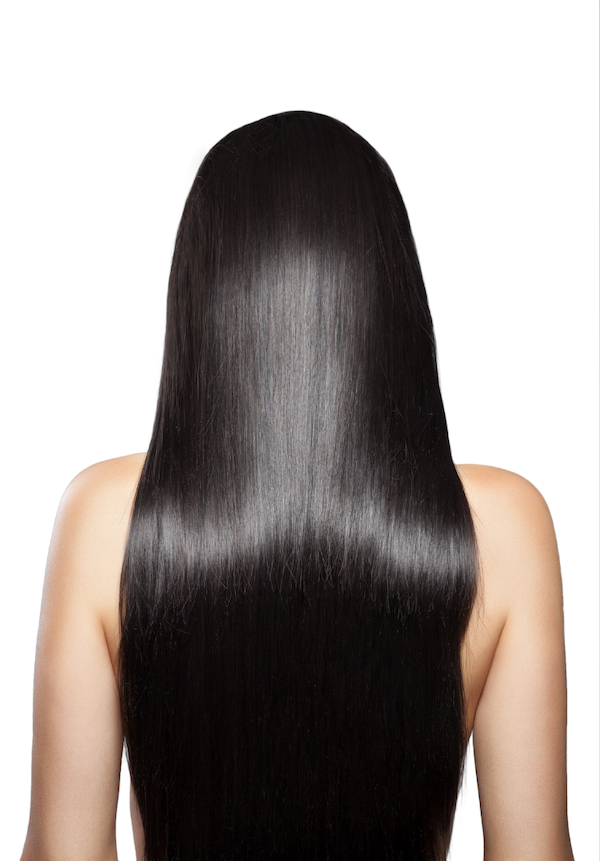
Think of your hair like a piece of silk versus a piece of wool. When the surface is smooth and tightly woven — like silk — it catches and reflects light beautifully. But when it’s rough and uneven, that light scatters, making it look dull.
Your hair works the same way.
Each strand has an outer layer called the cuticle — a shield of overlapping “scales” that protect the inner core. When these scales lie flat and sealed, light bounces off evenly, creating that sleek, glossy finish everyone calls “glass hair.”
When they’re lifted or damaged (from heat, color, or dryness), hair feels coarse and looks matte — even if it’s technically clean.
The secret to natural shine isn’t about covering the damage with silicone or spray-on gloss. It’s about restoring the hair’s moisture, lipid balance, and structure so the cuticle can naturally smooth itself down again.
That’s why nourishing oils and antioxidants are key — they help repair the hair’s surface, replenish its natural oils, and lock in hydration so your hair reflects light the way healthy hair should.
5 Ways to Get the “Glass Hair” Look Naturally
Ready to bring your shine back without spending an hour under a flat iron? Here are five simple, science-backed ways to help your hair reflect light like glass (and feel just as smooth).
1. Hydrate from the inside out
Healthy shine starts with hydration. Dehydrated hair looks dull because it can’t reflect light evenly.
Drink plenty of water, and include omega-rich foods like chia seeds, flaxseeds, and avocados — they help strengthen your hair’s natural lipid barrier from the inside out.
2. Switch to gentle, sulfate-free cleansers
Harsh shampoos strip away the oils that make your hair soft and reflective.
Look for gentle, sulfate-free formulas that cleanse without removing your natural moisture — especially if you wash daily or use styling products often.
3. Protect against heat damage
Heat styling might give you a “temporary shine,” but it often comes at the cost of long-term dullness.
Use heat protectants before blow-drying or styling, and try lowering the temperature settings when possible. Your cuticles will thank you.
4. Brush smarter, not harder
Over-brushing can cause friction and breakage. Instead, use a soft boar or vegan bristle brush to evenly distribute your scalp’s natural oils down the hair shaft — this naturally boosts shine and smoothness.
5. Use nutrient-rich oils and serums
The right blend of oils can make a huge difference. Look for products that contain lightweight, nutrient-dense oils like jojoba, argan, and MCT oil — ingredients known to nourish, smooth, and seal in moisture without weighing hair down.
A good serum doesn’t just sit on top of the strand. It helps strengthen and protect it, restoring that silky “glass” texture from the outside in.
Nature’s Gloss-Makers
If you’ve ever used a conventional shine spray or serum, you’ve probably noticed something: the gloss looks great… until you wash it out.
That’s because most “instant shine” products rely on synthetic silicones that coat your strands instead of nourishing them. They create a temporary illusion of health — but don’t actually repair the dryness or smooth the cuticle underneath.
True, lasting shine comes from nourishment, not coating.
That’s where nature’s gloss-makers come in.
EverBella’s Essential Growth Hair Serum was designed to help your hair look radiant because it’s actually becoming radiant.
Its blend of plant-based oils and antioxidants works to hydrate, strengthen, and smooth each strand — supporting natural shine from the inside out.
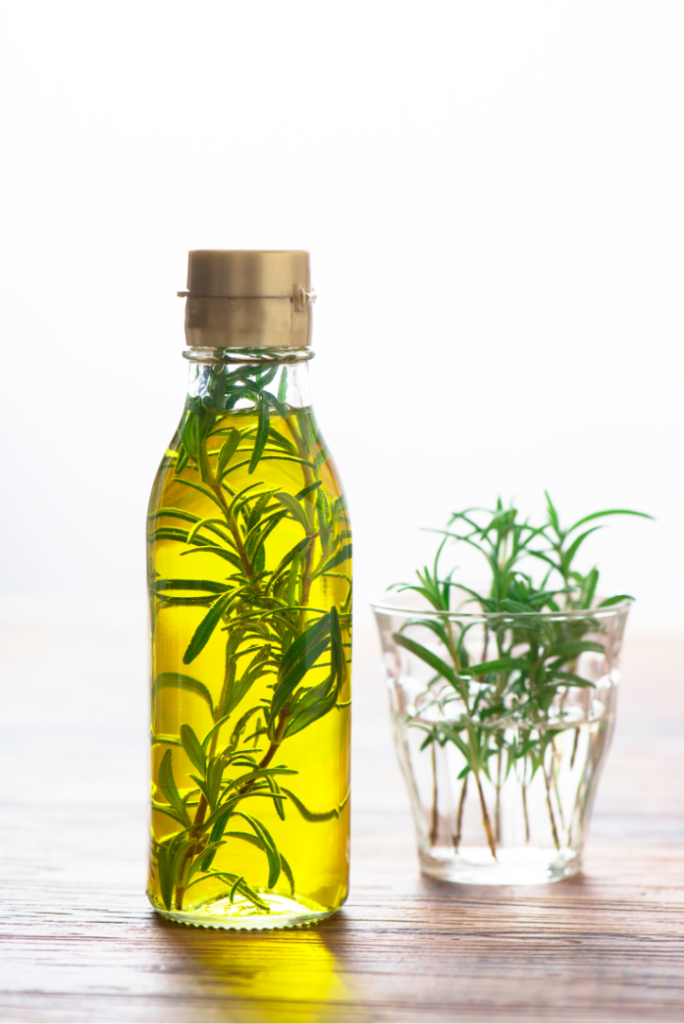
Here’s a look at what’s inside:
- MCT Oil & Jojoba Oil — Lightweight and fast-absorbing to deeply hydrate without greasiness.
- Castor Oil — Helps support thicker-looking hair and strengthen strands from root to tip.
- Argan & Olive Oils — Seal moisture into the cuticle and leave hair silky, soft, and reflective.
- Rosemary & Green Tea Seed Oils — Stimulate and protect the scalp for healthy growth conditions.
- Vitamin E & Arnica — Defend against oxidative stress and environmental damage.
- Peppermint or Lavender Essential Oils — Offer a refreshing or calming sensory finish while soothing the scalp.
Together, these natural ingredients create the perfect recipe for strong, hydrated, light-reflective hair — without synthetic shine boosters.
Shine That Starts With Strength
The “glass hair” trend might look like a styling trick — but true, lasting shine isn’t something you fake. It’s something you build.
When your hair is nourished, hydrated, and protected, light doesn’t just bounce off it — it glows from within. That’s the kind of shine that doesn’t fade after a wash day or vanish in humidity.
And that’s exactly what EverBella’s Essential Growth Hair Serum was made for.
With its blend of rich botanical oils, antioxidants, and soothing essential oils, it helps restore your hair’s natural smoothness and shine while supporting stronger, more resilient strands over time.
Whether you choose the refreshing Peppermint formula or the calming Lavender, each drop helps bring your hair one step closer to that healthy, light-reflective radiance — naturally.
✨ Explore both scents here and bring your hair’s natural shine back to life >>
Because when your hair is healthy, strong, and nourished — every day is a good hair day.
Top 5 Nutrient Deficiencies That Cause Hair Thinning in Women
We’ve all been there — brushing our hair and noticing more strands in the bristles than usual… or realizing that our ponytail feels thinner than it used to.
It’s easy to panic and blame age, stress, or even your shampoo. But the truth is, your hair is often the first to show signs that your body is missing something inside.
Hair growth depends on a steady stream of nutrients. When that balance slips — from diet, stress, or even seasonal changes — your body naturally prioritizes vital organs over hair follicles. The result? Slower growth, more shedding, and lackluster strands that refuse to bounce back.
The good news is that most of these causes can be reversed. Often, all your body needs is a little nutritional nudge to get things growing again.
So let’s dig into the five most common nutrient deficiencies that can make women’s hair thin, dull, or brittle, PLUS how to restore that healthy shine from within.
1. Vitamin D — The Growth Activator

You’ve probably heard of Vitamin D as the “sunshine vitamin.” But what many people don’t realize is that it plays a huge role in your hair’s ability to grow.
Vitamin D helps “wake up” dormant hair follicles, the little pockets in your scalp where new strands begin their journey. When levels drop too low — which is surprisingly common, especially in colder months or if you spend most of your time indoors — those follicles can get sluggish. The result? More shedding, slower regrowth, and a thinner appearance overall.
Researchers have even found that women with chronic hair thinning often have significantly lower Vitamin D levels than those with healthy growth patterns.
Here’s the tricky part: even if you eat well, it’s hard to get enough Vitamin D from food alone. Most of it comes from sunlight, and with sunscreen, cloudy days, or working inside, your skin might not be making enough.
That’s why supplementing can make such a difference.
Thankfully, Complete Biotin Plus includes Vitamin D3 — the same form your body makes from sunlight — delivered in a micelle liposomal formula so it’s absorbed efficiently. It’s like sending your follicles a gentle wake-up call each morning, reminding them it’s time to grow again.
(Learn more by clicking here).
2. Biotin — The Shine Maker
If Vitamin D is the wake-up call for your follicles, Biotin is the beauty vitamin that keeps them glowing.
Biotin (also known as Vitamin B7) is essential for producing keratin — the protein that makes up your hair, skin, and nails. Without enough of it, your strands can become dry, brittle, and prone to breaking before they even have a chance to grow long.
You might notice the signs right away:
- Hair that snaps easily when brushed
- Nails that peel or split
- Dull, lifeless strands that have lost their shine
And while biotin is found in foods like almonds, eggs, and sweet potatoes, here’s the catch — stress, poor gut absorption, or restrictive diets can make it tough for your body to hold onto enough.
That’s where Complete Biotin Plus shines. It delivers a bioavailable form of biotin that’s encased in micelles — tiny protective spheres that help your body absorb and use it efficiently. So instead of passing through your system unused, it actually gets to work where it’s needed most: your follicles.
With consistent use, many women notice stronger, shinier hair that not only looks healthier but feels more resilient to styling and everyday stress.
3. Zinc — The Protector
Think of Zinc as your hair’s natural bodyguard.
This powerful mineral helps keep the oil glands around your follicles working smoothly, ensuring each strand stays nourished and protected. It also supports cell growth and tissue repair, which are essential for a healthy scalp and consistent regrowth.
When Zinc levels dip, it can lead to dryness, breakage, or slower growth. And in more severe cases, even shedding or thinning.
Zinc deficiency is more common than most people realize, especially among women who follow vegetarian or vegan diets, or those dealing with chronic stress (since stress quickly uses up your body’s mineral stores).
You can boost your Zinc levels naturally by eating pumpkin seeds, lentils, chickpeas, quinoa, and cashews or by taking a balanced mineral supplement if your diet doesn’t include many of those foods.
Keeping your Zinc intake steady is one of the simplest ways to support stronger strands and a balanced scalp over time.
4. Selenium — The Detox Defender

If your hair could talk, it would thank Selenium for being its personal bodyguard against damage.
This trace mineral acts like an antioxidant shield, protecting your hair follicles from oxidative stress — the kind caused by everyday factors like pollution, sun exposure, and even stress. When your body runs low on Selenium, that protective barrier weakens. The result? Dull, fragile hair that seems to break faster than it grows.
Selenium also supports the enzymes that help your scalp stay balanced and comfortable. Without enough of it, you might notice irritation or inflammation — two things that make it hard for follicles to thrive.
You can get Selenium from foods like Brazil nuts, mushrooms, and brown rice, but it’s easy to fall short (you only need a little, yet most people don’t get even that).
That’s why Complete Biotin Plus includes just the right amount — to help defend your follicles from the inside out, while keeping your scalp happy and healthy.
Because shiny, strong hair starts with a healthy foundation and Selenium helps you build exactly that.
5. Omega-3 Fatty Acids — The Moisture Keeper
You’ve probably heard that Omega-3s are good for your heart. But they’re also a quiet hero when it comes to hair and scalp health.
These essential fats help nourish your hair follicles from the inside, supporting smooth strands and a hydrated scalp. They also promote healthy circulation, which means more oxygen and nutrients reach your follicles — a big win for growth.
When Omega-3 levels drop, your hair can start to look dry or dull, and even your scalp may feel tight or itchy. No amount of conditioner can fully fix that, because moisture has to come from within.
You can boost your intake by adding flaxseeds, chia seeds, walnuts, or algae oil to your diet. Not only will your hair thank you, but your skin and mood often get a lift, too.
Feed Your Follicles, Feel the Difference
At the end of the day, healthy, vibrant hair starts from within.
Your strands are constantly renewing themselves and that process depends on getting the right nutrients. When even one is missing, your hair will tell you.
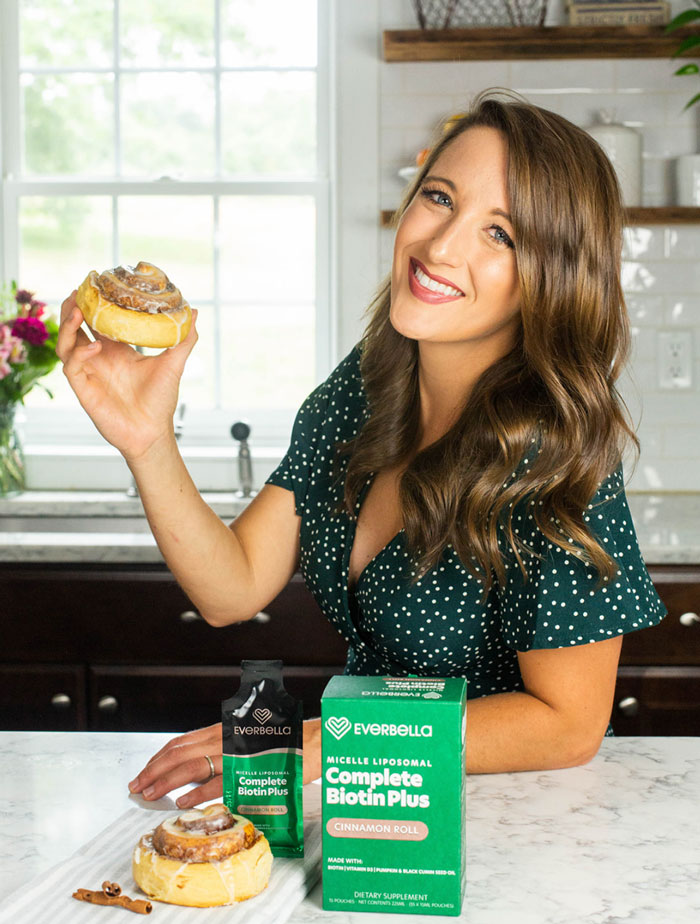
By replenishing your body with essentials like Vitamin D, Biotin, Selenium, and other key nutrients, you’re helping your follicles stay active, hydrated, and resilient.
That’s exactly what Complete Biotin Plus was designed to do.
Each drop delivers these hair-loving nutrients in a micelle liposomal formula that helps your body absorb and use them, meaning your follicles actually get the support they need to grow stronger, shinier, and more radiant hair.
And right now, you can give your hair twice the love:
💛 Buy One Complete Biotin Plus, Get One Free! 💛
It’s the perfect time to stock up, stay consistent, and see the difference that real nourishment makes.
Claim your Complete Biotin Plus BOGO offer today >>
Because when your hair looks healthy, you feel unstoppable and that confidence truly starts from the inside out.
The 8 Morning Habits That Secretly Age You (And How to Fix Them)
You know those mornings where you wake up, look in the mirror, and think, “Why do I look so tired?”
The truth is, it might not be your age — it might be your habits.
So many of us follow the same morning routine for years without realizing that a few innocent habits — things like skipping breakfast, overdoing the caffeine, or scrolling before even getting up — can quietly speed up the aging process.
They can drain your energy… dull your skin… and make you feel older than you really are.
The good news? Small changes can make a huge difference.
By swapping out a few of these sneaky “aging” habits for gentler, more supportive ones, you can start your day feeling refreshed, balanced, and glowing — inside and out.
Here are 8 morning habits that might be aging you faster than you think… and how to fix them.
1. Skipping Water First Thing
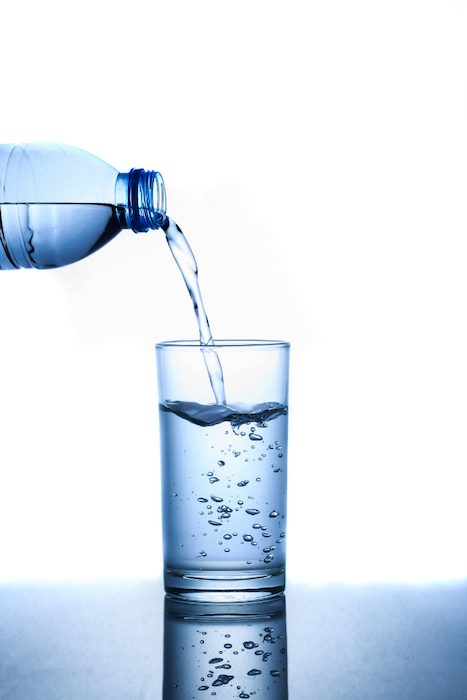
You’ve been asleep for 7–8 hours, which means your body’s been quietly losing water all night long.
So when you wake up and head straight for the coffee machine, you’re basically pouring caffeine onto a dehydrated system. ☕💦
Dehydration first thing in the morning can make your skin look dull, your mind feel foggy, and your energy crash before lunch.
The fix? Drink a big glass of water before anything else.
Add a squeeze of lemon if you like — it wakes up your digestion and gives your skin a quick dose of vitamin C.
You’ll be amazed how something so simple can make you feel instantly more awake, clear-headed, and refreshed — all before that first sip of coffee even hits your lips.
2. Relying on Caffeine Alone for Energy
Don’t worry — I’m not here to take away your coffee. (I love mine too much for that!)
But if your only source of morning energy comes from caffeine, your body might be paying the price.
Coffee gives you a quick boost, but it can also spike cortisol, dehydrate your skin, and send your energy crashing a few hours later. That’s why you might feel wired at first… and totally drained by mid-morning.
The fix? Pair your coffee with real nourishment.
Have a protein-rich breakfast, a smoothie, or even a few spoonfuls of something that feeds your cells — not just your cravings.
(One of my favorite tricks? Mixing my morning smoothie with Complete Collagen Plus. It keeps me energized, full, and glowing all day long.)
Because when your energy comes from within, it doesn’t fade — it flows.
3. Ignoring Protein in Your Breakfast
If your breakfast is just toast and coffee, you’re not alone — but your body might be begging for more.
Protein in the morning does so much more than just keep you full. It helps stabilize your blood sugar, supports muscle tone, and fuels collagen production — one of the key building blocks for smooth, firm, youthful-looking skin.
Without enough protein, you may notice that “sluggish” feeling mid-morning… or that your skin looks a little duller than it used to.
The fix? Add a source of clean, easy-to-digest protein to your morning routine.
That could mean a smoothie with plant protein, chia pudding with almond butter, or a spoonful of Complete Collagen Plus stirred into your coffee or breakfast shake.
You’ll feel satisfied, steady, and energized — and your skin will thank you for the extra nourishment.
4. Scrolling Before Sunrise
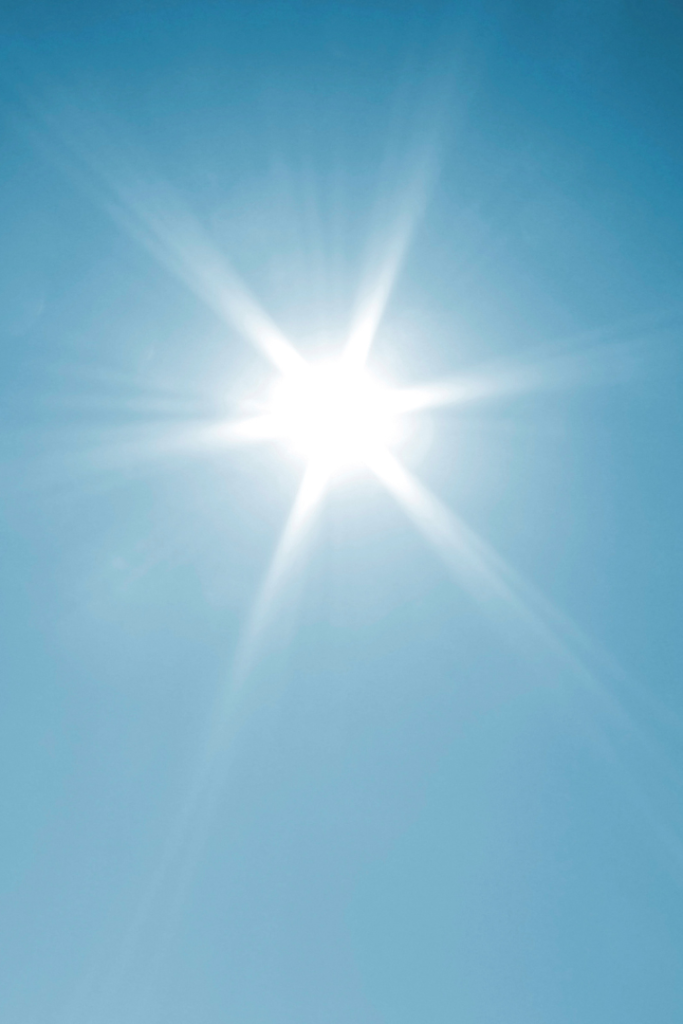
Be honest… how often do you reach for your phone before you even get out of bed?
(If your hand just shot up, don’t worry. Mine did too once upon a time!)
But here’s the thing: those early-morning scrolls instantly flood your brain with stress hormones like cortisol. Your nervous system goes from peaceful to panicked before you’ve even had a sip of water.
And over time, that constant stress can show up on your skin in the form of dullness, breakouts, and faster aging.
The fix? Wait at least 20–30 minutes before checking your phone.
Instead, stretch, take a few deep breaths, or step outside for a minute of real sunlight. It helps your body wake up naturally, balances your mood, and gives your skin that healthy morning glow.
Your inbox — and the news cycle — can wait. 😉
5. Overwashing or Using Hot Water on Your Face
We all love that steamy shower in the morning. But your skin? Not so much.
Hot water strips away your skin’s natural oils and weakens its protective barrier. That’s why your face can feel tight, dry, or even a little red afterward.
And when you over-cleanse or use harsh products right after, it only makes things worse — speeding up moisture loss and fine lines.
The fix? Use lukewarm water and a gentle, hydrating cleanser.
Then, seal in moisture with your favorite serum or moisturizer while your skin’s still damp.
Your skin will feel softer, calmer, and way more radiant — no scalding required.
6. Skipping Sunscreen on Cloudy Days
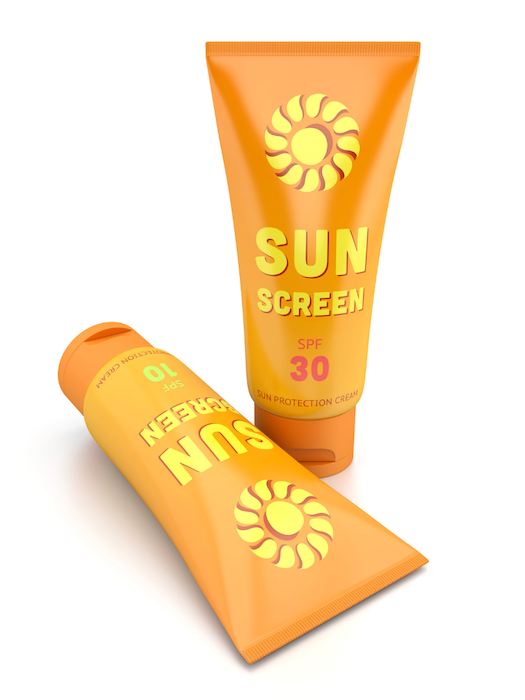
If you only wear sunscreen when it’s sunny, here’s a little secret — your skin can still get damaged even when it’s grey outside.
Up to 80% of UV rays sneak through clouds and windows, which means your skin is quietly exposed all year long. Those invisible rays are the biggest culprits behind wrinkles, dark spots, and loss of elasticity over time.
The fix? Make SPF your everyday habit — rain or shine.
Keep a lightweight, broad-spectrum sunscreen next to your moisturizer or makeup so it’s part of your routine without even thinking about it.
Your future self will thank you because daily protection is one of the easiest ways to stay glowing, smooth, and youthful.
7. Eating Breakfast Too Late
If your mornings are a blur and breakfast keeps getting pushed later and later… your body definitely notices.
When you wait too long to eat, your cortisol levels (that stress hormone again!) stay high, which can lead to mood swings, fatigue, and even stubborn weight gain.
It can also mess with your skin since your body runs on stress instead of nourishment, your glow takes a hit.
The fix? Eat something nourishing within an hour of waking up.
Even something simple — like toast with nut butter and a drizzle of Complete Collagen Plus — can help balance your blood sugar, boost your focus, and get your skin looking radiant.
Your body doesn’t just want energy — it wants the right energy, and giving it early sets the tone for your whole day.
8. Forgetting “You Time”
You might think you don’t have time for yourself in the morning, but skipping those few quiet minutes can set the tone for a stressful day.
When you roll straight from bed into work mode (emails, chores, rushing out the door), your body stays in fight-or-flight mode. And that constant tension doesn’t just drain your mood — it can literally show up on your skin.
The fix? Take 5 minutes just for you.
Sip your coffee in peace, stretch, write down three things you’re grateful for — anything that makes you feel grounded.
Because when your mind feels calm, your body relaxes, your energy steadies, and your natural glow comes back.
You don’t need an hour-long morning routine — just a few intentional minutes that remind your body: “I’m safe, I’m cared for, and I’ve got this.” 💕
Reclaim Your Morning — and Your Glow

It’s wild how small changes can make such a big difference.
When your mornings are built on hydration, balance, and calm — your body feels it. Your energy lasts longer. Your skin looks brighter. And your day just flows better.
And if you want to take that glow one step further? Nourish your beauty from the inside out.
That’s why so many women start their mornings with Complete Collagen Plus — EverBella’s best-selling, bioavailable liquid collagen formula that your body can actually use.
Just one spoonful gives your skin, hair, and joints the deep support they crave — helping you stay smooth, strong, and radiant at any age.
Because when you treat your mornings (and yourself) with care, your body doesn’t just thank you… it shows it. ✨
>>> Make your morning glow with Complete Collagen Plus by clicking here (special offer inside)
5 Everyday Clues You’re Low in Biotin
(That Have Nothing To Do With Hair)
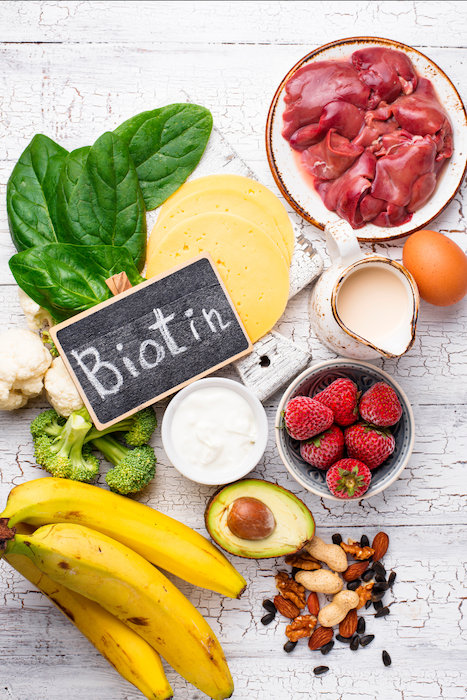
When most people think of biotin, they picture shiny hair and strong nails. But this little nutrient—also called vitamin B7—does so much more behind the scenes.
It helps your body turn food into fuel, supports healthy skin, balances mood, and even keeps your metabolism running smoothly.
So when your biotin levels start to dip, your body doesn’t just whisper—it sends early warning signs that something’s off. And here’s the surprising part: those signs often have nothing to do with your hair.
If you’ve been feeling “off” lately—low energy, dull skin, or just not yourself—it could be your body’s way of asking for more of this overlooked beauty vitamin.
Here are five everyday clues you might be low in biotin (and how to help your body bounce back).
Clue #1: You’re Tired for No Clear Reason
If you’ve been dragging through the day even after a full night’s sleep, your body might be waving a quiet red flag. Biotin plays a major role in turning the food you eat into usable energy. It helps enzymes break down carbohydrates, fats, and proteins—your body’s main fuel sources.
When biotin levels dip, that conversion process slows down. The result? Your cells aren’t getting the energy they need, and you end up feeling drained, foggy, or sluggish for no obvious reason.
This kind of fatigue can sneak up slowly—it’s not the “I stayed up too late” tired. It’s the I just can’t seem to get going lately kind of tired.
How to fix it: Focus on biotin-rich foods like almonds, sweet potatoes, and sunflower seeds—and make sure you’re actually absorbing what you take. Complete Biotin Plus uses a micelle liposomal formula that helps your body absorb more of the biotin (and vitamin D3) it needs for steady, natural energy.
Clue #2: Your Skin Feels Dry, Itchy, or Dull
If your moisturizer isn’t cutting it lately, your skin might be asking for nourishment from the inside, not the outside.
Biotin helps your body produce healthy fatty acids—the natural oils that keep skin soft, hydrated, and smooth. When levels run low, that moisture barrier starts to weaken. You may notice dry patches, flakiness around the nose or mouth, or an overall dull tone that just doesn’t seem to improve no matter how much cream you use.
Low biotin can also affect how your body repairs skin cells, making it harder for your complexion to “bounce back” from irritation or stress.
How to fix it: In addition to staying hydrated and eating healthy fats (like avocado and flax), support your skin from within. Complete Biotin Plus delivers biotin in a micelle liposomal form—a delivery system that helps your body actually absorb the nutrient instead of letting it pass through unused. The result? A smoother, more nourished complexion that glows naturally.
Clue #3: Your Nails Are Breaking or Peeling
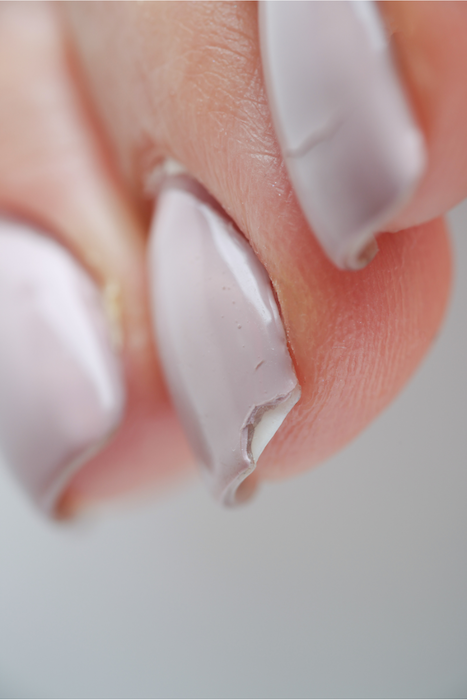
If your nails split, peel, or snap before they ever reach your ideal length, biotin might be part of the story.
Your nails are made of keratin, a tough protein that depends on biotin to form properly. When biotin is low, keratin structure weakens, leading to thin, brittle nails that bend or break easily. Even mild deficiencies can show up here first—long before your hair changes.
Other nutrients, like selenium and vitamin D, also support nail strength and growth by helping cells regenerate. When combined, they form a powerful foundation for healthy nails that actually hold up against everyday wear and tear.
How to fix it: Feed your nails from the inside out. A formula like Complete Biotin Plus delivers biotin, vitamin D3, selenium, and nourishing seed oils in one easy daily serving. Together, they help rebuild keratin, promote smoother nail beds, and restore that healthy, natural sheen.
Clue #4: You’re Moody, Foggy, or “Off” Mentally
Ever feel like your brain is running on low battery? You’re not imagining it — biotin helps more than just your physical appearance. It also supports healthy brain and nerve function by helping regulate blood sugar and energy metabolism in the brain.
When biotin levels dip, your body’s ability to keep blood sugar stable can falter — and that can lead to mood swings, mental fog, and that vague “something’s off” feeling. You might notice irritability, low motivation, or even mild anxiety that seems to appear out of nowhere.
The connection is simple: your brain depends on steady fuel to function at its best, and biotin helps keep that energy flow running smoothly.
How to fix it: Nourish your mind like you nourish your body. Pair biotin-rich foods (like nuts and legumes) with healthy fats that support brain health — or go straight to a bioavailable formula like Complete Biotin Plus. Its blend of biotin, vitamin D3, and antioxidant-rich pumpkin and cumin seed oils helps promote balanced energy, clearer focus, and a calmer mood from the inside out.
Clue #5: Your Digestion Feels Sluggish or Off Balance
Here’s something most people don’t realize — your body actually makes some of its own biotin. Beneficial gut bacteria help produce it naturally. But when your gut health takes a hit (from stress, antibiotics, or poor diet), biotin production can drop right along with it.
Low biotin can quietly disrupt digestion, leaving you feeling bloated, sluggish, or “off” after meals. It can also mean your body isn’t fully absorbing other nutrients — which, over time, affects your energy, skin, and hair too.
Because your gut and skin are so closely connected, this can show up as breakouts, dryness, or dullness — even when you’re eating well.
How to fix it: Start by taking care of your gut. Add probiotic-rich foods like yogurt, kimchi, or sauerkraut to your diet, and reduce processed foods that feed harmful bacteria. Then, support your body with Complete Biotin Plus — a liposomal formula designed for superior absorption, so your body and your gut get the full benefit of every nutrient.
Why These Clues Often Get Missed
Biotin deficiency isn’t always obvious. The signs tend to blend in with everyday life — feeling tired, stressed, or like your skin and nails just “aren’t what they used to be.”
Because the symptoms are subtle and build slowly, most people don’t think biotin could be the reason. Instead, they chalk it up to aging, busy schedules, or stress. And to make things trickier, even when people do take a biotin supplement, their body might not actually absorb it well.
That’s because traditional capsules and tablets often break down poorly in the digestive tract, meaning very little of the nutrient makes it into the bloodstream where it can do its job.
This is where delivery matters. A micelle liposomal formula — like the one in Complete Biotin Plus — wraps each nutrient in a protective layer that helps it absorb far more efficiently. So instead of wasting most of your biotin, your body can finally put it to use where it counts: your skin, nails, metabolism, and overall energy.
The Smarter Way to Replenish Biotin
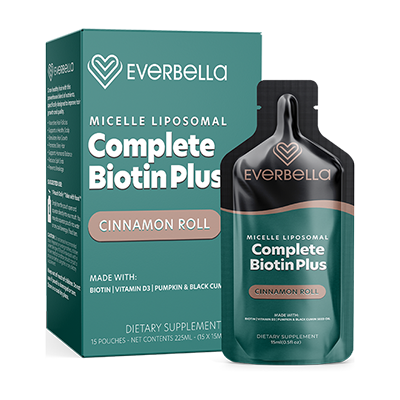
If a few of these clues sound familiar, your body might be trying to tell you something — it’s ready for a biotin boost.
Complete Biotin Plus makes it easy to support your hair, skin, nails, and energy from within. Each sugar-free, cinnamon-flavored serving delivers biotin, vitamin D3, selenium, and nourishing pumpkin and cumin seed oils — all wrapped in micelle liposomal technology for maximum absorption.
That means your body actually uses the nutrients you’re giving it, instead of letting them go to waste.
Because when your cells get what they need, you’ll feel it — from stronger nails and smoother skin to steadier energy and a glow that comes naturally.
👉 Right now, you can even claim a limited-time BOGO offer on Complete Biotin Plus — buy one, get one free. Tap below to grab yours while supplies last and start feeling the difference inside and out.
